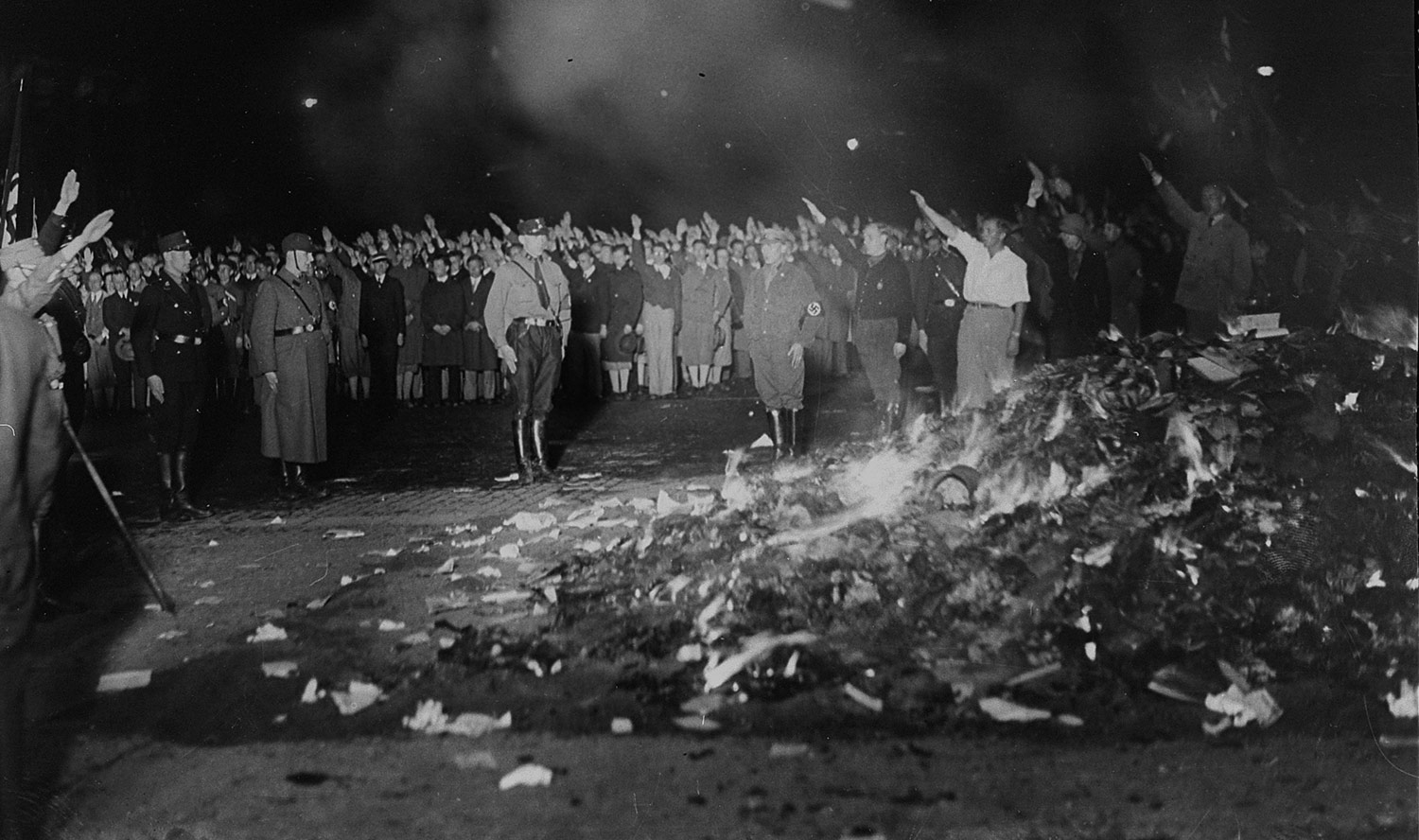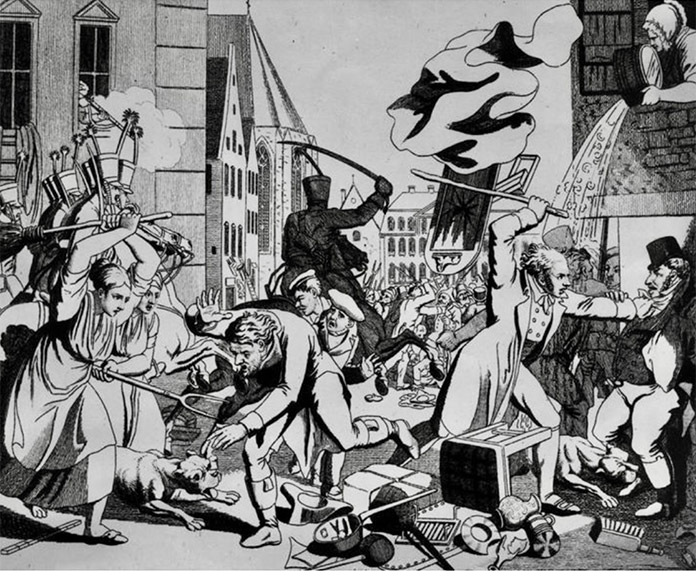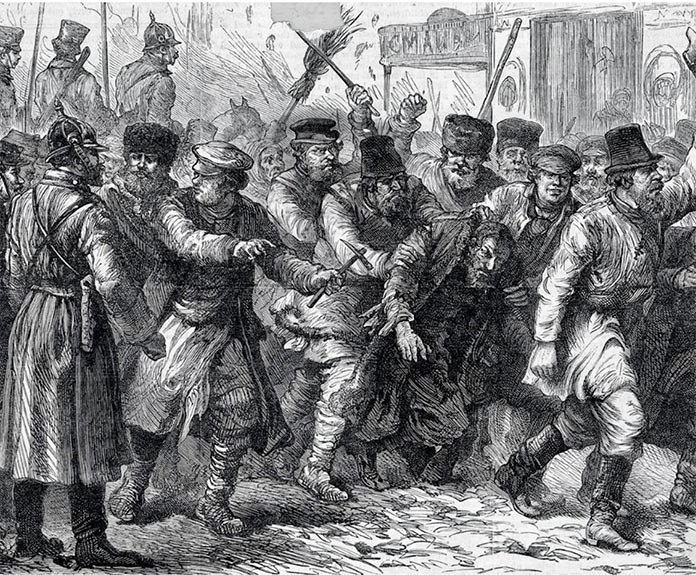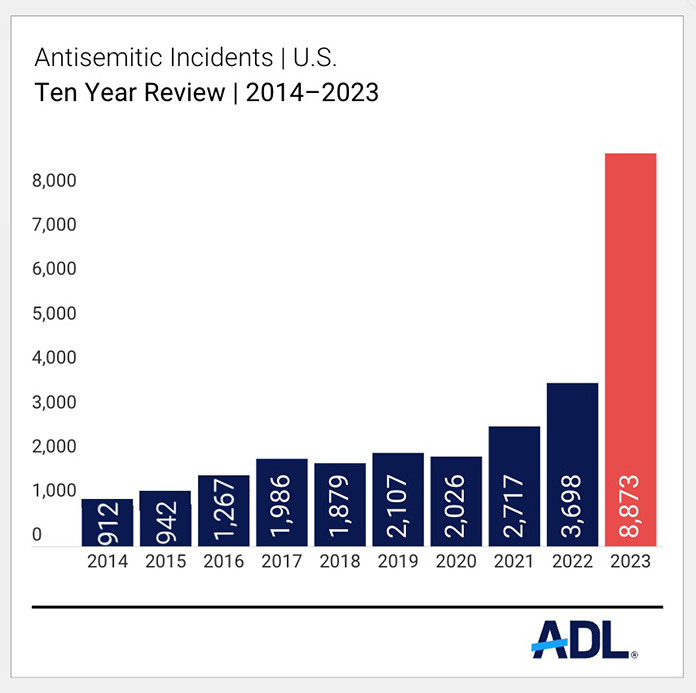Knowing Antisemitism
a Webquest for Grades 9-12
“We saw that all the world is against us.”
—Max Cukier, Jewish partisan

an⋅ti⋅sem⋅i⋅tism noun
Prejudice against or hatred of Jewish people

Antisemitism has been called the “longest hatred.”

Many forms of this hatred have been directed at Jewish people and Jewish communities for thousands of years, and they persist to this day.
Unlike other forms of bigotry, antisemitism is not merely a social prejudice—it is a conspiracy theory about how the world operates. It is a set of beliefs about the world that blame Jewish people for things that are not their fault—like social, economic, or political problems.
Antisemitism has survived for centuries through mutation and adaptation, appearing in different cultures, religious communities, and political groups. It has caused significant harm to Jewish people across the world. This has included discrimination, being forced to live in ghettos, mass violence and genocide.


While the Holocaust is the most infamous historical example of the consequences of antisemitism, the Jewish people have been subjected to many waves of mass violence and attempted genocide over the centuries.
It is important to understand that antisemitism doesn't just hurt Jewish people. It spreads suspicion, bigotry, and hatred towards other races, cultures, and beliefs, creating division and chaos in society.
Antisemitism weakens democracy and makes it harder for society to solve problems in a rational and effective way. In recent years, anti-hate organizations have documented a disturbing increase of antisemitism in the United States. In 2022, the Anti-Defamation League (ADL) found that 85% of Americans believe at least one antisemitic stereotype about Jewish people. 20% of Americans believe six or more antisemitic stereotypes.

Belief leads to behavior. In the last decade, the number of antisemitic incidents (i.e. harassment, vandalism, and assault) have increased over 900%—from 912 incidents in 2014 to nearly 8,900 in 2023. More than 1 in 8 of these incidents occurred at schools. These figures included over 1,000 bomb threats in 2023 toward synagogues and other Jewish institutions, up from 91 the previous year.
In this webquest, you will learn how to identify antisemitism. You will explore the history of antisemitism to find the origins of antisemitic conspiracy theories we find in society today. You will come to understand the societal harm caused by scapegoating. You have the ability to positively impact the world simply by recognizing and calling out antisemitism and hate when you encounter it.
Resisting antisemitism begins with identifying antisemitism.